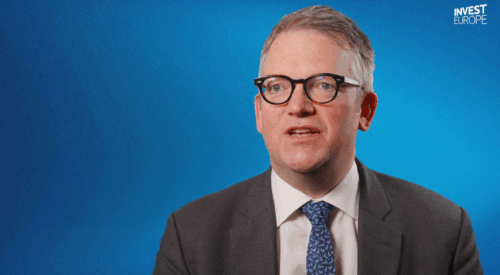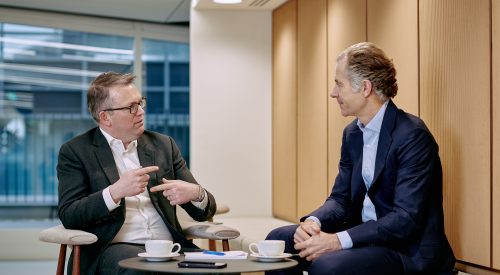Private equity, the ownership or capital investment into companies that are not publicly listed or traded, covers a wide spectrum of investments. From start-up companies and early-stage investments, to acquisitions of larger more established companies. Private equity backed companies touch most of us in our everyday lives, whether it be a software company, a manufacturer or a healthcare provider. In almost every country around the world, most sectors have companies owned and funded through private equity investment. In the UK, almost 850,000 people are employed by companies backed by private equity.
Private equity investors have a long term investment horizon, typically between four to seven years, allowing them to build value in companies by improving the business over the lifetime of the investment. In addition, private equity backed companies have access to capital, both from funds and relationships the private equity managers have with banks. This allows private equity firms to support their portfolio companies by providing cash during times of economic stress.
Due to the illiquid nature of investments in private companies, private equity managers will only make the decision to invest after a long period of deep investigation. This is not only important for the investigation process, but also informs the investment thesis and strategy for the private company.
Private equity has what is known as an active ownership model. Active ownership is an effective way to minimise risks and maximise returns through the use of ownership and the ability to influence the behaviour and activities of companies. Private equity managers create value by growing and improving their portfolio companies. They acquire a controlling stake, 50% or more of the voting shares in a business, and bring their significant skills and expertise to drive value by actively working with management teams to deliver strategic change and operational improvements. Operationally, private equity managers work with management teams to maximise efficiencies and address any issues of underperformance by identifying them early and resolving them quickly.
In a crisis, such as the Global Financial Crisis of 2008 or the current Coronavirus pandemic, private equity’s active ownership model and close lines of communication with businesses means they can move quickly to address issues. In addition, leading private equity firms have significant operating teams in place that can provide expert guidance and resource in periods of economic uncertainty, addressing any issues in their early stages.
We now find ourselves in another period of uncertainty, with businesses experiencing short term financial difficulties. For those businesses impacted, private equity can provide liquidity, helping to alleviate their short term financial difficulties while also providing a long term strategy for growth. Although it is still unclear what the long term impact of Coronavirus will be on financial markets and the economy, if history is a guide, private equity will remain resilient and continue to outperform public markets over the long term.
With a focus on profitable private companies in Europe and the US, at ICG Enterprise Trust (ICGT) our strategy is focused on companies that we believe have defensive growth characteristics and have performed well through previous economic cycles. By ‘defensive growth’ we mean companies that can grow even in difficult environments. Typically, this means that the companies are not reliant on the economy for their growth. These more resilient sectors in the past have included healthcare, consumer staples, business services and technology. At ICGT we have a portfolio that is well diversified and weighted towards these resilient sectors and larger companies, which we believe are more resilient through economic cycles.
Private equity is by no means a simple asset class to navigate which is why choosing the right private equity manager is key. Managers who are more operationally focused are well suited to successfully manage investments through periods of economic stress, such as those we are in currently. As well as this, private equity is an illiquid asset class and traditional private equity funds are difficult for most private investors to access due to minimum commitment sizes typically being in the region of £5 million as well as being complex to administer. Listed private equity investments help to overcome all of these barriers to investing.
The best way for the private investor to access these illiquid investments in private companies is through a closed ended investment trust. These funds are usually publicly listed, meaning they are available to private investors, and shares in these funds can easily be bought through platforms such as Hargreaves Lansdown, AJ Bell or via your investment adviser.
You can choose to buy shares in a private equity investment trust that invests in a diversified pool of private equity funds, this is called a Fund of Funds. Alternatively, you can choose to buy shares in a private equity investment trust that invests directly into the private companies themselves, so it does not invest in other funds, this is called a direct private equity fund.
At ICGT, we believe that combining features of both models offers the best of both worlds. While the highly diversified Fund of Funds provides diversification at both the manager and company level, direct investments enhance returns while increasing visibility and control.
Private equity is a rapidly expanding asset class, with the number of companies in private markets far outweighing those on public markets. Increasingly some of the world’s most sophisticated investors are increasing their allocations. For a long time, private investors have been heavily focused on public listed company investments in their equity portfolio. Primarily this has been due to challenges in accessing private companies but as we have discussed here, the challenges are easily overcome and there are significant benefits to investing. Whether in a time of crisis, or a period of normality as we hope to see in the months to come, we believe it is time for private investors to copy some of the world’s largest and most sophisticated investors by broadening their portfolios and embracing private assets.



















 Back
Back